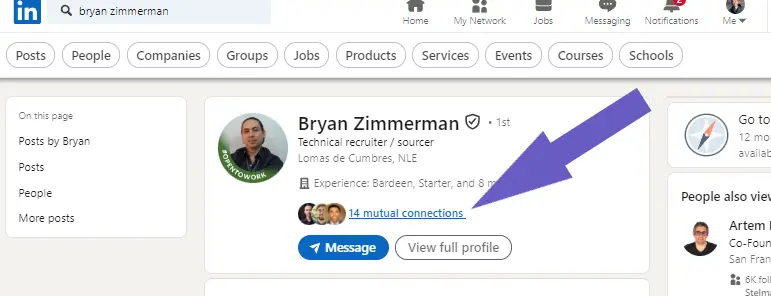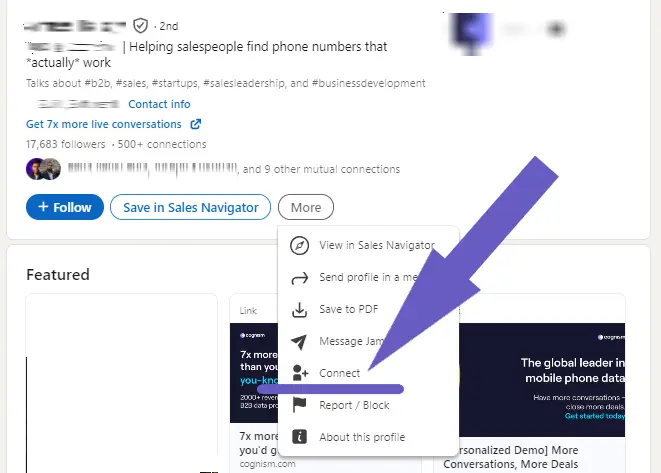





Mastering the art of being a sales manager is crucial for driving sales performance and leading a successful team. In 2023, there were 584,800 sales manager jobs in the United States, with a projected 6% growth by 2033. As a sales manager, you play a vital role in setting sales strategies, coaching reps, and analyzing data to optimize results. But what does it take to excel in this challenging role?
In this comprehensive guide, we'll walk you through the essential skills every sales manager needs to thrive. From honing your communication and leadership abilities to leveraging cutting-edge tools like AI-powered assistants, you'll discover practical tips and real-world examples to help you level up your management game. Ready to unlock your full potential as a sales leader? Let's dive in!
Effective communication and interpersonal skills are crucial for becoming a successful sales manager. Building strong relationships with team members and clients, setting clear expectations, and adapting your communication style to different situations are key to driving sales performance.
Active listening and empathy are the foundation of effective communication. By genuinely listening to your team and clients, you can better understand their needs, concerns, and motivations. This allows you to provide targeted support, feedback, and solutions that build trust and loyalty.
Active listening involves giving your full attention to the speaker, asking clarifying questions, and providing verbal and nonverbal cues to show engagement. When you actively listen, you not only gather important information but also make the other person feel valued and heard.
For example, when meeting with a sales rep, put away distractions like your phone or laptop and focus on their words, tone, and body language. Paraphrase what they've said to ensure understanding and ask open-ended questions to gain deeper insights into their challenges and goals.
To further refine your skills, consider exploring sales intelligence techniques for gathering and applying data to improve your interactions.
As a sales manager, it's your responsibility to set clear, measurable goals for your team and communicate expectations around performance, behavior, and values. When everyone is aligned around common objectives and understands what's expected of them, they can work more effectively and efficiently.
Break down big-picture goals into specific, actionable targets for each rep. Provide regular updates on progress, celebrate wins, and offer constructive feedback when needed. Use a mix of group meetings, one-on-ones, and written communication to reinforce key messages and ensure everyone is on the same page.
Every sales rep is unique, with their own personality, strengths, and areas for growth. To get the best out of each individual, tailor your communication and coaching style to their needs and preferences.
Some reps may thrive with frequent check-ins and hands-on guidance, while others prefer more autonomy and big-picture direction. Some may respond well to direct, no-nonsense feedback, while others need a more nurturing, empathetic approach. By adapting your style to each rep, you can build stronger relationships and unlock their full potential.
Conflicts are inevitable in any team, whether it's between reps, with other departments, or with clients. As a manager, it's crucial to address conflicts quickly and fairly, focusing on finding solutions rather than placing blame.
Encourage open, honest communication and active listening to understand each party's perspective. Work together to find win-win solutions that address everyone's needs and concerns. Model respectful, collaborative behavior and create opportunities for team bonding and relationship building, such as team lunches, off-sites, or volunteer projects.
By developing strong communication and interpersonal skills, you can create a positive, high-performing sales team that consistently meets and exceeds targets.
In the next section, we'll explore the importance of sales coaching and mentoring in developing your team's skills and potential.
Effective sales coaching and mentoring is essential for maximizing your team's performance and fostering a culture of continuous improvement. By providing regular one-on-one coaching sessions, constructive feedback, and personalized development plans, you can empower your reps to reach their full potential and consistently exceed their targets.
Consider using Bardeen to automate sales prospecting. Free yourself from repetitive tasks and focus more on coaching your team to success.
One-on-one coaching sessions are the cornerstone of effective sales management. These meetings provide a dedicated space for managers to discuss individual goals, challenges, and opportunities with each rep. By regularly checking in, you can build stronger relationships, identify areas for improvement, and provide targeted support.
For example, let's say you notice that one of your reps, Sarah, is struggling to close deals at the final stage. During your one-on-one, you can dive into her specific challenges, roleplay different scenarios, and provide guidance on overcoming objections. This personalized attention can help Sarah refine her skills and boost her confidence.
Providing constructive feedback is crucial for helping your reps grow and improve. However, it's equally important to recognize and celebrate their successes. By striking the right balance between coaching and praise, you can create a positive, motivating environment that encourages continuous learning. Learn more about crafting effective sales discovery questions to enhance these sessions.
When offering feedback, focus on specific behaviors and outcomes rather than personal traits. For instance, instead of saying, "You're not a strong closer," try, "I noticed that you struggled to address the prospect's concerns about pricing in that last call. Let's brainstorm some strategies for handling that objection more effectively."
Every sales rep brings a unique set of strengths and weaknesses to the table. To provide effective coaching, you need to understand each individual's specific needs and tailor your approach accordingly. This might involve leveraging data from your CRM or sales enablement tools to identify patterns and areas for improvement.
For example, you might notice that one rep excels at building rapport but struggles with time management, while another is a master at closing but needs help with prospecting. By recognizing these individual differences, you can create targeted coaching plans that address each rep's unique challenges and leverage their natural strengths.
In addition to day-to-day coaching, it's important to invest in your team's long-term growth and development. By creating professional development plans for each rep, you can help them build the skills and knowledge they need to advance their careers and take on more responsibility within the organization.
These plans should be collaborative, tailored to each rep's individual goals and aspirations. They might include a mix of internal training sessions, external workshops, mentorship opportunities, and stretch assignments. By showing your reps that you're invested in their future, you can boost engagement, retention, and performance.
Effective sales coaching and mentoring requires a consistent, personalized approach that focuses on each rep's unique needs and goals. By mastering these essential skills, you can unlock your team's full potential and drive sustainable sales success.
Next up, we'll explore how data analytics can help you make more informed coaching decisions and optimize your sales processes for maximum impact.
Data analytics is a game-changer for sales managers looking to take their team's performance to the next level. By tracking key performance indicators (KPIs), leveraging powerful analytics tools, and using data-driven insights to inform decision-making, you can optimize your sales processes and strategies for maximum impact. Let's dive into the essentials of leveraging data analytics for sales success.
To effectively measure and improve your team's performance, you need to track the right KPIs. Conversion rates, average deal size, and sales cycle length are just a few examples of metrics that can provide valuable insights into your sales process. By monitoring these KPIs consistently, you can identify areas for improvement and make data-driven decisions to optimize your strategies.
For instance, if you notice that your team's average deal size has been declining, you can dig deeper into the data to understand why. Are reps discounting too heavily? Are they targeting the wrong prospects? By analyzing the data, you can pinpoint the issue and take corrective action.
To make the most of your sales data, you need the right tools. Popular sales analytics platforms like Salesforce, HubSpot, and Pipedrive offer a range of features designed to help you track, analyze, and visualize your data. These tools can help you create customized dashboards, generate reports, and gain real-time insights into your team's performance.
When selecting a sales analytics tool, consider your team's specific needs and goals. Look for a platform that integrates seamlessly with your existing systems, offers robust reporting capabilities, and provides actionable insights that can drive results. For those interested in improving sales prospecting with automation, certain tools can greatly enhance efficiency.
Having access to data is just the first step. To truly leverage the power of analytics, you need to know how to interpret the data and identify meaningful trends. This requires a combination of analytical skills and domain expertise.
Start by looking for patterns and anomalies in your data. Are there certain days of the week or times of day when your team is more successful? Are there specific industries or customer segments that consistently outperform others? By identifying these trends, you can make informed decisions about where to focus your efforts and how to optimize your strategies.
Once you've identified key trends and insights from your data, it's time to put them into action. Use your findings to optimize your sales processes and strategies for maximum impact. This might involve adjusting your targeting criteria, refining your messaging, or implementing new tools and technologies to streamline your workflow.
For example, if you notice that deals are getting stuck at a particular stage of your sales process, you can use data to identify the root cause and implement a solution. Perhaps you need to provide additional training for your reps on handling objections, or maybe you need to create more targeted content to address common customer concerns.
By continuously analyzing your data and using insights to drive optimization, you can create a virtuous cycle of improvement that leads to better results over time.
Leveraging data analytics is essential for sales managers who want to stay competitive and drive results. By tracking the right KPIs, using powerful analytics tools, and making data-driven decisions, you can take your team's performance to new heights.
Stay tuned for our next section, where we'll explore the importance of strategic planning and leadership skills for sales management success. You won't want to miss it!
As a sales manager, aligning your team's efforts with the company's overall objectives is crucial for success. By developing a clear vision and roadmap, setting achievable goals, and motivating your team to reach their full potential, you can drive outstanding results. Let's explore the key aspects of strategic planning and inspiring leadership that every sales manager should master.
One of the most critical responsibilities of a sales manager is to ensure that the team's strategies and tactics align with the company's overarching goals. This requires a deep understanding of the business's mission, vision, and objectives, as well as the ability to translate these into actionable plans for the sales team.
For example, if the company's goal is to expand into a new market segment, the sales manager must develop strategies to target and acquire customers in that segment, while also ensuring that the team has the necessary skills and resources to succeed.
To lead your team effectively, you must have a clear vision of where you want to go and how you plan to get there. This involves creating a roadmap that outlines the key milestones, targets, and initiatives that will guide your team's efforts.
A well-crafted roadmap should be based on a thorough analysis of market trends, customer needs, and competitive landscape, as well as input from your team members. By involving your team in the planning process, you can foster a sense of ownership and commitment to the vision.
Want to save even more time and focus on key business strategies? Use Bardeen to automate repetitive tasks and streamline your workflow!
Once you have a clear vision and roadmap, the next step is to break it down into specific, measurable, achievable, relevant, and time-bound (SMART) goals. These goals should be challenging yet realistic, and should be accompanied by detailed action plans that outline the steps needed to achieve them.
For instance, if your goal is to increase sales revenue by 20% over the next quarter, your action plan might include tactics such as launching a new marketing campaign, optimizing your sales process, or expanding your team's skills through training and coaching.
As a sales manager, one of your most important roles is to motivate and inspire your team to reach their full potential. This involves recognizing and rewarding outstanding performance, providing ongoing feedback and support, and creating a positive and collaborative team culture.
To keep your team engaged and motivated, consider implementing incentive programs, celebrating successes, and providing opportunities for growth and development. By investing in your team's success, you can build a loyal and high-performing sales force that consistently exceeds expectations.
Strategic planning and leadership are essential skills for any sales manager looking to drive success in their organization. By aligning your team's efforts with business objectives, developing a clear vision and roadmap, setting achievable goals, and motivating your team to reach their full potential, you can unlock the power of effective sales leadership.
Thanks for sticking with us through this comprehensive guide on becoming a top-notch sales manager! We hope you've gained valuable insights and practical tips to elevate your leadership game. Remember, mastering these skills takes time and practice, so don't get discouraged if you stumble along the way – even the best sales managers had to start somewhere!
Mastering the essential skills of a sales manager is crucial for leading a successful sales team.
In this guide, you discovered:
By applying these skills, you'll be well on your way to becoming a top-performing sales manager. Don't miss out on the opportunity to take your team to new heights!










SOC 2 Type II, GDPR and CASA Tier 2 and 3 certified — so you can automate with confidence at any scale.
Bardeen is an automation and workflow platform designed to help GTM teams eliminate manual tasks and streamline processes. It connects and integrates with your favorite tools, enabling you to automate repetitive workflows, manage data across systems, and enhance collaboration.
Bardeen acts as a bridge to enhance and automate workflows. It can reduce your reliance on tools focused on data entry and CRM updating, lead generation and outreach, reporting and analytics, and communication and follow-ups.
Bardeen is ideal for GTM teams across various roles including Sales (SDRs, AEs), Customer Success (CSMs), Revenue Operations, Sales Engineering, and Sales Leadership.
Bardeen integrates broadly with CRMs, communication platforms, lead generation tools, project and task management tools, and customer success tools. These integrations connect workflows and ensure data flows smoothly across systems.
Bardeen supports a wide variety of use cases across different teams, such as:
Sales: Automating lead discovery, enrichment and outreach sequences. Tracking account activity and nurturing target accounts.
Customer Success: Preparing for customer meetings, analyzing engagement metrics, and managing renewals.
Revenue Operations: Monitoring lead status, ensuring data accuracy, and generating detailed activity summaries.
Sales Leadership: Creating competitive analysis reports, monitoring pipeline health, and generating daily/weekly team performance summaries.